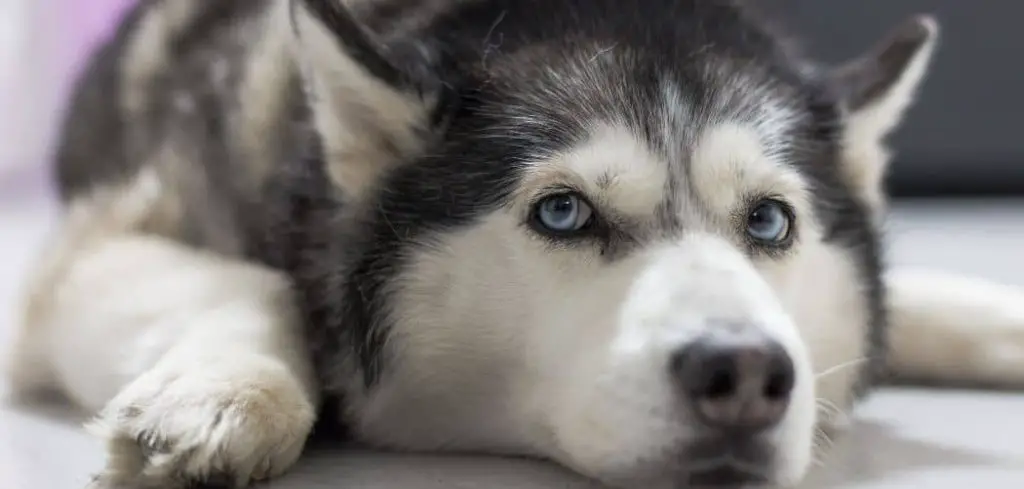Seeing your senior dog relieve themselves indoors can be frustrating and concerning.
We outline the common reasons why an old dog may keep pooping in the house, what you can do at home, and when to seek veterinary help.
Old Dog Keeps Pooping in House — Why It Happens
An old dog may start pooping in the house due to age-related changes in their body or behavior. Common causes include weakened bowel control, cognitive decline (canine dementia), medical issues like gastrointestinal problems or infections, dietary changes, or mobility challenges that make it hard to get outside in time. Stress or changes in routine can also play a role.
If your senior dog suddenly develops this habit, it’s important to rule out medical problems first, then address management at home with scheduled potty breaks, easy outdoor access, and sometimes medication or special diets under your vet’s guidance.

Old Dog Keeps Pooping in The House: Common Causes
Cognitive Dysfunction
Cognitive dysfunction syndrome (CDS) in older dogs can lead to confusion and forgetfulness.
Dogs may lose track of where they should eliminate, forget house-training routines, or become disoriented.
Panting, pacing, and altered sleep patterns often accompany this condition. Recognizing CDS early can help you adjust routines and provide supportive care.
Read more: Old dog poop like jelly with blood (Causes and solutions)
Digestive Disorders
Digestive issues such as inflammatory bowel disease, infections, or pancreatitis can trigger sudden indoor accidents.
Symptoms may include diarrhea, vomiting, weight loss, or changes in appetite. Digestive discomfort makes timely bowel control difficult, requiring veterinary evaluation for treatment and dietary adjustments.
Urinary or Fecal Incontinence
Weak pelvic muscles or nerve damage in senior dogs can cause loss of control over bowel movements.
Owners may notice dribbling stool or accidents occurring shortly after elimination outdoors. Incontinence often worsens with age and may require lifestyle adjustments and medical support.
Arthritis or Mobility Issues
Arthritis and joint pain can make it painful for older dogs to reach outdoor areas in time.
Signs include stiffness, limping, or reluctance to climb stairs. Providing easier access to outdoor areas or using indoor pads can reduce accidents while maintaining comfort.
Anxiety or Stress
Changes in environment, routine, or household dynamics can increase accidents in older dogs.
Symptoms may include pacing, whining, or destructive behavior. Managing stress and maintaining a consistent routine can improve bladder and bowel control.
Dietary or Medication Changes
Recent changes in food, treats, or medications can upset the digestive system.
Owners may notice softer stools or increased frequency of defecation. Gradual transitions and monitoring dietary reactions help prevent indoor accidents.
What to Do If Your Old Dog Keeps Pooping in The House
Observe your dog’s bathroom patterns and record when accidents occur.
Maintain a consistent feeding and bathroom schedule to support regular bowel movements.
Provide easier access to outdoor areas or use indoor potty pads if mobility is limited.
Ensure a low-stress environment to reduce anxiety-induced accidents.
Consult your veterinarian before changing diets or starting supplements, as underlying health conditions may require professional guidance.
When to Call or Visit Your Vet
Immediate veterinary attention is warranted if your dog shows blood in stool, vomiting, lethargy, or sudden changes in behavior.
Frequent accidents accompanied by pain, swelling, or weight loss should be evaluated promptly.
If your old dog has incontinence, digestive disorders, or signs of cognitive decline, a veterinarian can run diagnostic tests and recommend appropriate treatment.
Read more: Old Dog Poop in sleep (What it means)
Key Takeaway
Repeated indoor accidents in older dogs often indicate age-related changes, medical conditions, or mobility challenges.
Monitoring patterns, maintaining a consistent routine, and ensuring comfort can help manage accidents at home.
Prompt veterinary evaluation is essential to identify underlying causes and provide targeted treatment.
Attentive care ensures your senior dog stays healthy, comfortable, and happy while keeping your home clean and safe.
